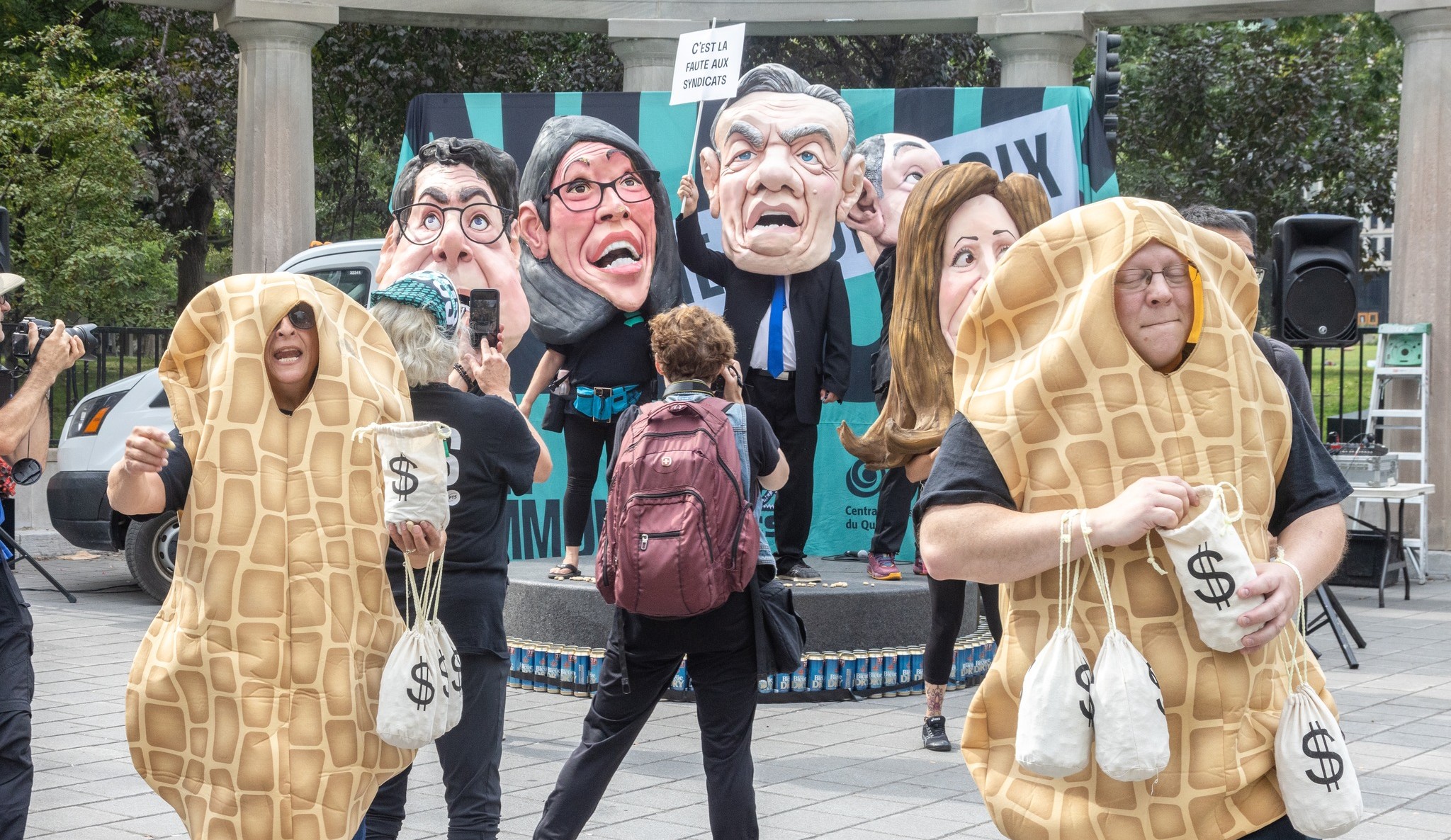Québec is boiling over at the start of October, in the face of one of the largest union mobilizations in decades. Since September 18, the 420,000 Quebec public sector employees represented by a united front of unions have been progressively adopting unlimited general strike mandates. This mobilization, combined with the 100,000-strong demonstration held in Montreal on September 23, has the Coalition Avenir Québec (CAQ) government worried.
Since voting began, the results have been unequivocal: members are largely in favor of a mandate for an unlimited general strike. At the CSQ, over 90% of members approved the mandate, in some cases reaching 95% or more. In some regions, such as the Outaouais, support for the strike reached 100% in some units. The CSN also recorded strong support, with an average of 92.6%, and the FTQ reported support rates of over 95%. Finally, the APTS achieved similar results, with support up to 100% in some areas.
"Figures this high, with levels of this high, we haven't seen that in a long time," says François Enault, vice-president of the CSN. "It's certainly symptomatic of our members' state of mind. They have nothing to lose; they're angry and they want to see it through."
Québec's public sector employees are united behind a clear message: they've had enough of the government's proposals, which they describe as insulting, when the latter is only offering a 9% increase over five years. In addition, they oppose an attempt to make working hours more unstable to the detriment of workers, as well as demands to weaken unions in various areas, allowing managers to bypass the collective weight of unions to exert more pressure on individual workers.
Demands of the united front include an immediate wage increase of $100 per week, indexation of wages to inflation, as well as an increase of 3% in 2024 and 4% in 2025, preservation of pension benefits, improvement of insurance premiums and recognition of whistleblowers.

The situation is becoming increasingly tense for the CAQ government, especially as inflation has risen by 16% since 2020, significantly reducing workers' purchasing power. Workers therefore feel that their demands are legitimate, adding that the government recently granted a 30% increase to MPs, fuelling the feeling that they are not being treated with the same respect.
The strike that could shake up the public sector has another declared objective, that of preserving the quality of services offered by public institutions. This was emphasized by the united front following the publication of the Québec Ombudsman's 2022-2023 annual report, which highlighted staff shortages, a major issue long denounced by public network workers.
"Service disruptions are real, and frankly, there are known solutions," said Front Commun representatives in a press release. They called on the government to invest massively in the public network to retain staff and attract new recruits, stressing that flexibility has its limits, and that workers cannot continually do more with less.
- Us Against the State: A Documentary on the United Front
- Quebec healthcare workers still without a contract
- Quebec unionized nurses reject “disrespectful” proposed deal
- “We could have fought together for better,” says FIQ member
- One in ten workers soon on strike?
- 1972, the Year Workers Shook the State
- Privatization in the name of “efficiency”
- An Education Reform Deaf to the Key Issues
- Québec government improvises solutions
- Strike mandates accumulate with overwhelming support
- 100,000 workers in the street: “they’ve had enough”
- It’s Halloween for Quebec’s Public Employees, Or at Least for Some
- United Front workers determined to keep up the fight
- FAE to call unlimited strike on November 23
- A historic movement, “we’ve never seen anything like it”
- The CAQ cares about kids (or so it says)
- Government treatment fuels “our indignation and will strengthen our mobilization”
- Superior Court Violates Teachers’ Right to Strike
- “Legault and all the others are destroying Quebec as we know it”


